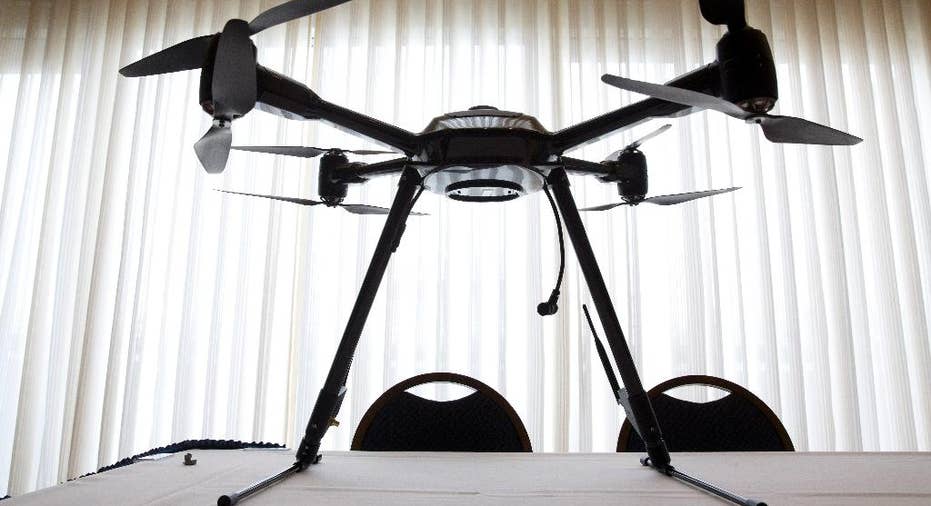A look at proposed rules for commercial and government drone flights

Some highlights of rules proposed Sunday on routine flights by small, commercial drones and on privacy protections when the government uses drones to collect information:
DRONE FLIGHTS
— Proposed Federal Aviation Administration regulations would permit commercial operation of remote-controlled aircraft weighing less than 55 pounds. They would be permitted to fly up to 100 mph and up to 500 feet in altitude.
— Operators would have to pass an FAA test of aeronautical knowledge and a Transportation Security Administration background check. Operators would not need a private pilot license, a concession to industry.
— Only one operator would be required instead of an operator and a spotter to keep an eye out for other aircraft, another concession.
— Operators would have to keep drones within eyesight at all times, which significantly limits the distance they can fly. The restriction probably would prevent drone delivery as proposed by Amazon.
— Flights would be prohibited within 5 miles of an airport and over crowds
— Drones would not be required to have an FAA airworthiness certificate similar to those required of manned aircraft, another concession. However, they would have to be registered with the FAA and would receive an "N number" for identification purposes similar to the numbers on airplane tails.
— The FAA will accept comments for 60 days after the proposal is published. It's expected to be two or three years before the rules are final.
— The FAA will continue to grant waivers case by case to its current ban on commercial drone flights while working on final rules. A few dozen requests for waivers have been granted; more than 300 requests are pending.
— Current rules for model aircraft, which are often indistinguishable from small drones, would remain the same.
_____
PRIVACY
— A presidential memorandum requires federal agencies to ensure that policies are place on government drones to protect against their abusive use.
— The policies should "prohibit the collection, use, retention, or dissemination of data in any manner that would violate the First Amendment or in any manner that would discriminate against persons based upon their ethnicity, race, gender, national origin, religion, sexual orientation, or gender identity, in violation of law."
— Agencies must publish information within one year describing how to access their drone policies and procedures.
— Agencies must examine their drone policies and procedures before deploying new unmanned aircraft technology, and at least every three years.
— The Commerce Department, working with other agencies, must launch an effort that includes business groups, privacy advocates and others within 90 days to develop privacy rules for commercial and private drones.
— The American Civil Liberties Union praised the memorandum as an important step, but said it falls short of fully protecting the privacy of Americans. For example, the proposal allows the use of data gathered by domestic drones for any "authorized purpose," which is not defined, leaving the door open to inappropriate drone use by federal agencies, the ACLU said.



















